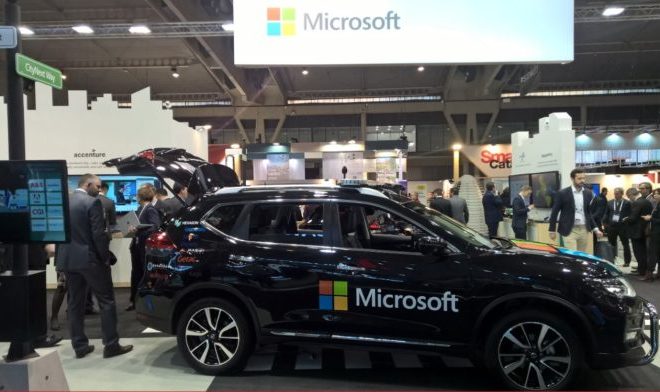‘Smart cities’ are not inclusive – but they can be, new research claims
‘Smart cities’ are not serving the needs of people with disabilities and older people, and risk deepening an existing digital divide, according to new, in-depth research.
Smart cities are loosely defined as cities that integrate digital technologies into their infrastructure to transform and improve the lives of citizens and landscapes.
In 2016, G3ict (the Global Initiative for Inclusive ICTs) and non-profit initiative World Enabled (which works to protect the rights of people with disabilities) launched a research project to assess ICT accessibility in smart cities around the world. Over 250 experts and smart city program managers were surveyed and interviewed, with around 60% claiming that smart cities were failing people with disabilities. Only 18% of respondents knew of a smart city that uses ICT accessibility standards
As a result of the findings, G3ict and World Enabled have just launched a Smart Cities for All Toolkit, featuring four digital tools to help those involved in city planning to make future technology projects more inclusive.
James Thurston, Vice President for Global Strategy and Development at G3ict, told e-Access Bulletin that the toolkit was developed specifically to address the key barriers to digital inclusion within smart cities. He said: “Smart cities are positioning themselves as more competitive, more inclusive, and more ‘liveable.’ However, we want to make sure that they don’t leave our one out of seven city residents that may live with a disability.”
Dr. Victor Pineda, President and Founder of World Enabled, told e-Access Bulletin about some of the biggest barriers that people with disabilities and older people face in smart cities projects: “User interface is a big problem, but so is the lack of data being generated on or by persons with disabilities. Both are problems we know must be addressed.”
The Smart Cities for All toolkit contains the following documents: a guide to implementing priority ICT accessibility standards; a guide to adopting an ICT accessibility procurement policy; advice on communicating the case for stronger commitment to digital inclusion in cities; and, a database of solutions for digital inclusion in cities.
Dr. Pineda explained how these tools can be used to increase digital inclusion within cities: “We created a communications tool to help city leaders promote or upsell digital accessibility within the IT departments and generate more buy-in for digital inclusion and accessibility. This tool helps make the case for digital inclusion from both a human rights and a business perspective.”
Crucially, smart cities and the technologies used in them represent a huge opportunity to benefit citizens with disabilities and older citizens. “There is no reason why the newly built digital infrastructure cities are deploying should be leaving people behind,” Dr. Pineda said.
A summary of the research on the G3ict site further explains how smart city digital services can be made more accessible: “Content can be made available in multiple formats and languages, services can be offered remotely to home-bound or geographically isolated citizens, digital formats can serve multiple disabilities, and interact with a broad range of assistive technologies.”
The next steps for the project involve building a ‘digital inclusion maturity model’. Thurston said: “With this new tool, cities will be able to assess where they currently stand on ICT accessibility and digital inclusion and then build a roadmap for improvement.”
Additionally, the tools are being translated into different languages to allow increased use across the world. “Just recently we released the tools in Portuguese because we see so much innovative work on smart cities in Brazil and Portugal,” Dr. Pineda said.
Read more about the Smart Cities for All project and toolkit at the link below:
eab.li/6l .
Find out more about G3ict at the link below:
eab.li/6m
Find out more about World Enabled at the link below:
eab.li/6n
Content retrieved from: http://www.headstar.com/eablive/?p=1357.
Related Posts
Upcoming Events
There are no upcoming events.



